Henkel's Recycling Initiatives Include Social Plastic and Partnership with TerraCycle
Henkel expands its partnerships with the Plastic Bank and TerraCycle to increase its overall recycling offerings.
Henkel has launched several initiatives to increase its recycling offerings. The company recently announced the next step in its collaboration with social enterprise Plastic Bank, an organization that turns plastic waste into currency to fight ocean plastic and help people ascend from poverty. Plastic Bank’s primary focus is ocean-bound plastic waste—materials that have not been landfilled and are prone to enter waterways.
Henkel’s consumer business units laundry and home care and beauty care will launch product packaging made of 100% recycled plastic; up to 50% will be Plastic Bank’s Social Plastic—plastic collected before it enters oceans or waterways.
Henkel has partnered with Plastic Bank since 2017. The joint goal is to reduce plastic waste in the oceans while improving the lives of people in poverty, especially in countries that lack waste management infrastructure. With the help of Henkel, Plastic Bank opened three additional plastic collection branches in Haiti, one of the poorest countries in the world. The local population can return collected plastic waste and exchange it for money, goods, or services. This material, called Social Plastic, is then integrated back into the plastic value chain.
After successful pilot projects, Henkel is now moving further and integrating Social Plastic in various product packaging:
- From July onwards, in Germany all PET bottle bodies of the Pro Nature cleaning products under the Biff, Pril and Sidolin brands, as well as the bottle bodies for fabric finisher Vernel Fresh Control, will be made of 100% recycled plastics—of which 25% will be Social Plastic.
- In June, its beauty care line will launch two special editions of shampoo and shower gel in Germany: The bottle bodies of “Meeres Glück” from Nature Box and “Meeres Liebe” from Fa will be made of 100% recycled plastic—of which 50% will be Social Plastic.
“In total, around 200 tons of collected Social Plastic will be processed for Henkel in the year 2019—this plastic will not end up in the ocean,” says Thomas Müller-Kirschbaum, co-chair of Henkel’s Sustainability Council and head of R&D laundry & home care. “By integrating Social Plastic in our packaging on a long-term basis we are underlining our commitment to contribute to a circular economy and providing a long-term perspective for people in Haiti simultaneously.”
Henkel has set itself the goal to increase the share of recycled plastics in the packaging of its consumer products in Europe to 35% by 2025, and it is expanding its packaging lines made of 100% recycled plastics. Additionally, by 2025, all of Henkel’s packaging will be recyclable, reusable or compostable.
Henkel’s Adhesives And Additive Manufacturing Recycling Focus
Henkel also announced that its partnership with TerraCycle will help streamline recycling processes within additive manufacturing sector. The company will offer additive manufacturing customers recycling options across its Loctite brands.
Through its strategic partnership with technology leaders for specialized equipment Henkel is driving the adoption of 3D printing beyond prototyping and toward the production of final parts. By leveraging its access to customers across more than 800 industry segments, along with its wide range of Loctite adhesives and resins, Henkel is able to offer a broad, portfolio of materials for 3D printing applications and post-processing bonding, coating and cleaning solutions, with sustainable recycling options.
Henkel, in partnership with TerraCycle, was reportedly the first company worldwide to offer a recycling solution for anaerobic adhesive packaging and has since added light cure adhesive technologies packaging, with instant adhesives and cyanoacrylates to follow shortly. Through this program, Henkel’s customers with 3D printing operations are provided with a recycling box where used containers of UV curable 3D resins and cyanoacrylate-based adhesives are placed and later recycled by TerraCycle.
“Through the Adhesive Recycling Program, Henkel is offering its customers with 3D printing operations a unique opportunity to divert this hard-to-recycle industrial waste from landfills,” says Tom Szaky founder and CEO of TerraCycle. “We look forward to growing this revolutionary program, and continuing to provide consumers with a powerful, sustainable option to reduce their environmental impact.”
Related Content
Looking to Run PCR on a Single Screw? Here’s What to Keep in Mind
Just drop it in and mix it up? Sorry, there’s a lot more to it than that. Here is some of what you need to consider.
Read MoreRecycled Material Prices Show Stability Heading into 2023
After summer's steep drop, most prices leveled off in the second half.
Read MoreSD Polymers: 'One-Stop Solution for Mechanical Recycling'
‘Passionate’ recycler invests in people and technology to meet commitment to innovative, sustainable solutions for its processor customers.
Read MoreInside the Florida Recycler Gearing Up to Take on Scrap at NPE2024
Hundreds of tons of demonstration products will be created at NPE2024 next spring. Commercial Plastics Recycling strives to recycle all of it.
Read MoreRead Next
Why (and What) You Need to Dry
Other than polyolefins, almost every other polymer exhibits some level of polarity and therefore can absorb a certain amount of moisture from the atmosphere. Here’s a look at some of these materials, and what needs to be done to dry them.
Read MoreAdvanced Recycling: Beyond Pyrolysis
Consumer-product brand owners increasingly see advanced chemical recycling as a necessary complement to mechanical recycling if they are to meet ambitious goals for a circular economy in the next decade. Dozens of technology providers are developing new technologies to overcome the limitations of existing pyrolysis methods and to commercialize various alternative approaches to chemical recycling of plastics.
Read More
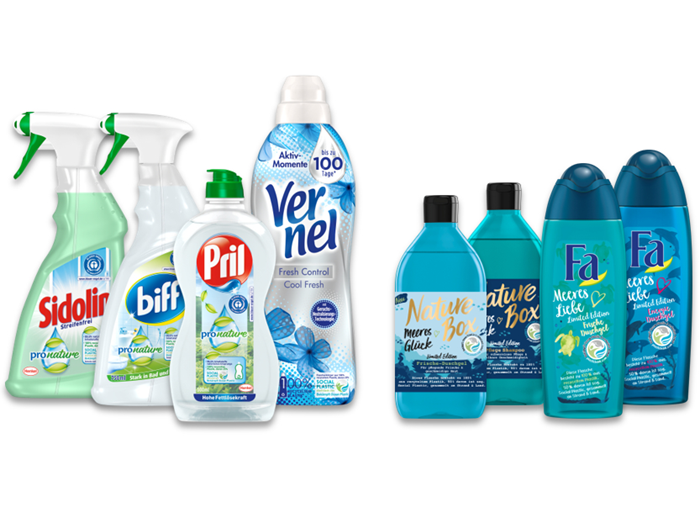
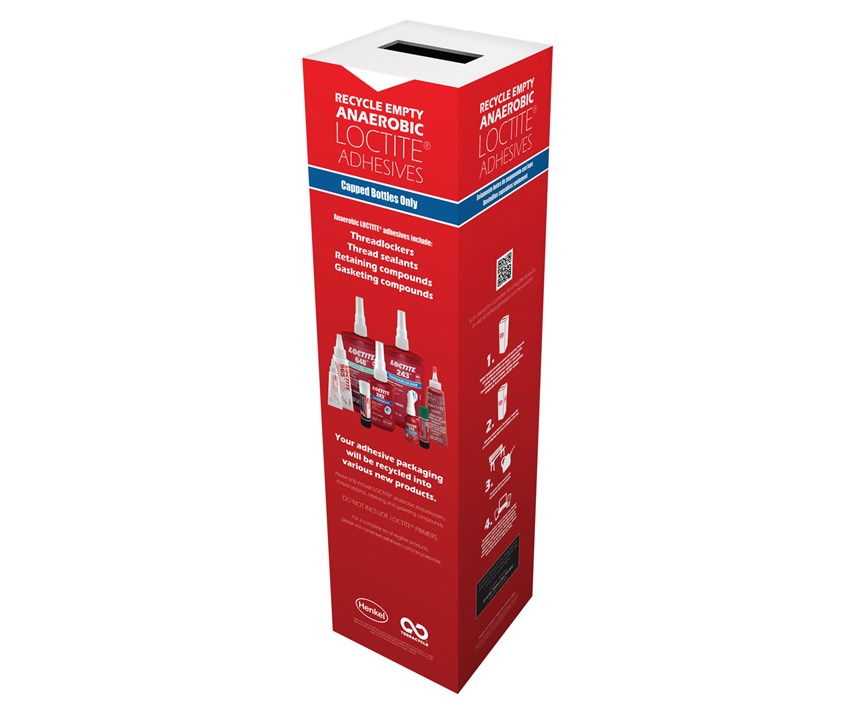

















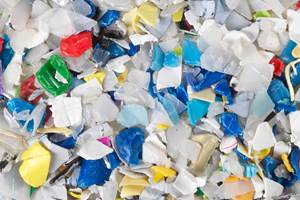
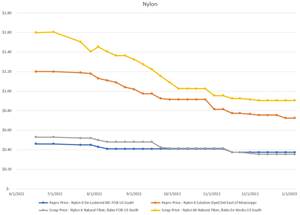
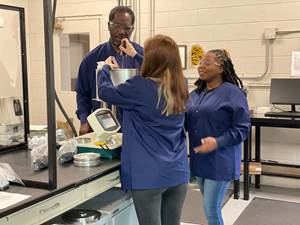
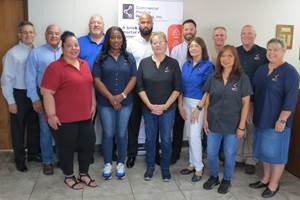
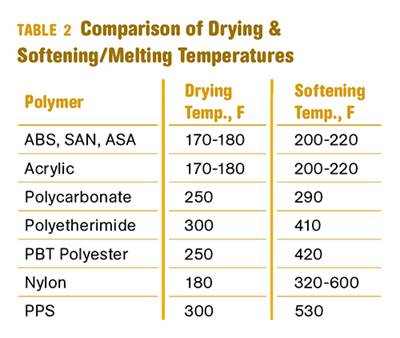

.png;maxWidth=970;quality=90)